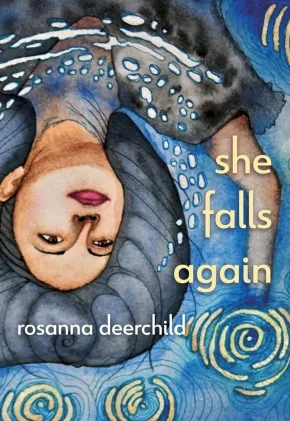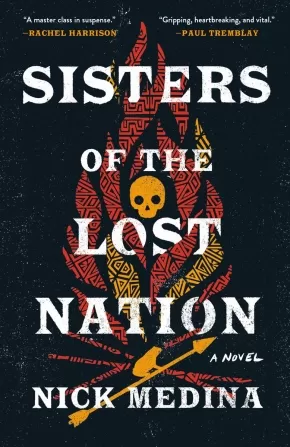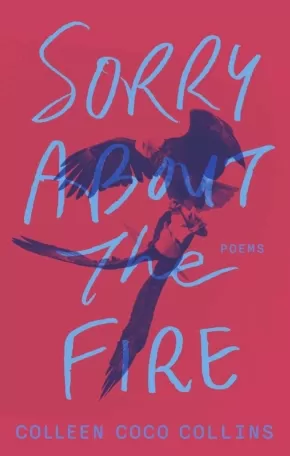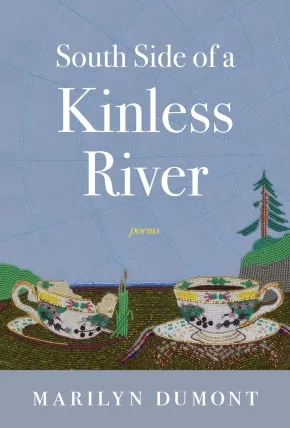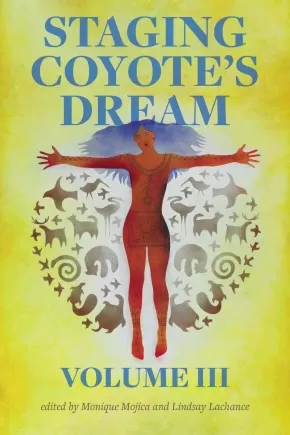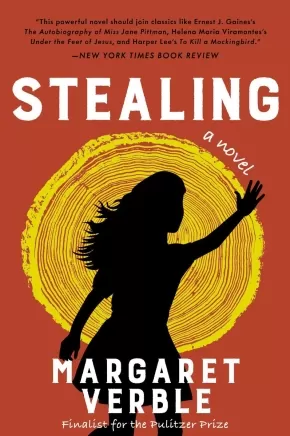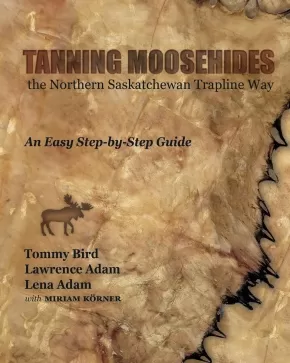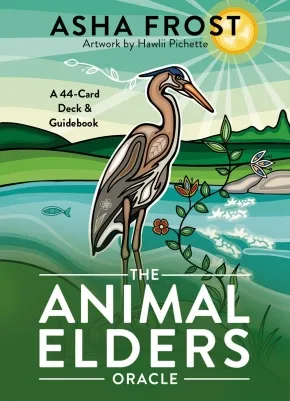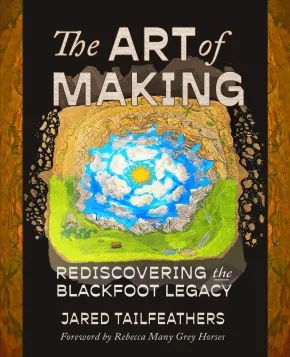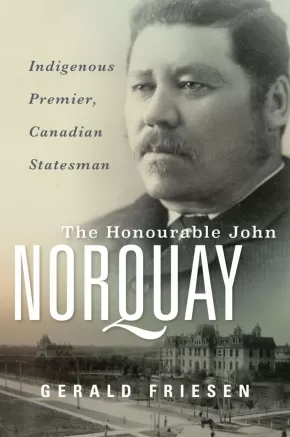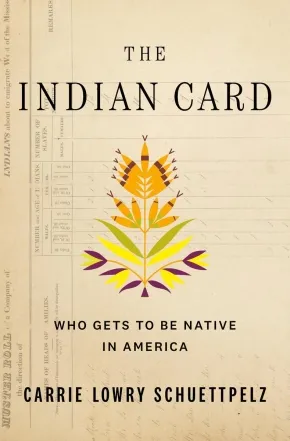
Indigenous Studies
181
-
195
of
1030 Results;
Sort By
Go To
of 69
She Falls Again
$23.95
Format:
Paperback
Text Content Territories:
Indigenous Canadian; First Nations; Cree (Nehiyawak);
Reading Level: N/A
ISBN / Barcode: 9781552454879
Synopsis:
Synopsis:
The Sky Woman has returned to bring down the patriarchy!
This book is about a poet who may or may not be going crazy, who is just trying to survive in Winnipeg, where Indigenous people, especially women, are being disappeared. She is talking to a crow who may or may not be a trickster, and who brings a very important message: Sky Woman has returned, and she is ready to take down the patriarchy.
This is poetry, prose and dialogue about the rise and return of the matriarch. It’s a call to resistance, a manifesto to the female self.
Cree poet and broadcaster Rosanna Deerchild is an important voice for our time. Her poems – angry, funny, sad – demand a new world for Indigenous women.
Awards
- 2025 Indigenous Voices Awards - Poetry in English Award
Additional Information
96 pages | 5.00" x 8.00" | Paperback
Sisters of the Lost Nation: A Novel
$24.95
Format:
Paperback
Text Content Territories:
Indigenous American; Native American;
Reading Level: N/A
ISBN / Barcode: 9780593546864
Synopsis:
Synopsis:
A young Native girl's hunt for answers about the women mysteriously disappearing from her tribe's reservation leads her to delve into the myths and stories of her people, all while being haunted herself, in this atmospheric and stunningly poignant debut.
Anna Horn is always looking over her shoulder. For the bullies who torment her, for the entitled visitors at the reservation’s casino…and for the nameless, disembodied entity that stalks her every step—an ancient tribal myth come-to-life, one that’s intent on devouring her whole.
With strange and sinister happenings occurring around the casino, Anna starts to suspect that not all the horrors on the reservation are old. As girls begin to go missing and the tribe scrambles to find answers, Anna struggles with her place on the rez, desperately searching for the key she’s sure lies in the legends of her tribe’s past.
When Anna’s own little sister also disappears, she’ll do anything to bring Grace home. But the demons plaguing the reservation—both ancient and new—are strong, and sometimes, it’s the stories that never get told that are the most important.
Part gripping thriller and part mythological horror, author Nick Medina spins an incisive and timely novel of life as an outcast, the cost of forgetting tradition, and the courage it takes to become who you were always meant to be.
Reviews
"Sisters of the Lost Nation weaves Native folklore with truths that we feel in our bones to create a story that is as beautiful as it is sad, as powerful as it is frightening, as familiar as it is otherworldly."—Alma Katsu, author of The Fervor and The Hunger
"Sisters of the Lost Nation is a dark and excruciatingly timely debut about the very real horror of Native girls going missing. Medina’s decisive authorial voice and unforgettable characters make for an incredibly powerful read."—Alexis Henderson, author of The Year of the Witching
Additional Information
368 pages | 5.22" x 7.97" | Paperback
Sorry About the Fire
$19.95
Format:
Paperback
Text Content Territories:
Indigenous Canadian; First Nations; Anishinaabeg; Odawa (Ottawa);
Reading Level: N/A
ISBN / Barcode: 9781771966139
Synopsis:
Synopsis:
I wanted a good bewildering, / down deep, / as the keep of a castle.
With a voice as ungovernable and determined as Prometheus—who stole fire from Zeus only to face dire consequences—Colleen Coco Collins' debut poems are daring dispatches from beyond the margins: light-filled flares sent up from the edge of language, sentience, land, and story. Drawing on all of her multidisciplinary enamorations and rendered through the triple vision of her Irish, French, and Odawa heritage, Sorry About the Fire introduces not just a poet, but a stunningly original sensibility.
Reviews
"Fealty to the sentient. To every mostleast thing, to every impulse (sentient), gesture (sentient). Re-resourcing language to equip it to be fit: bawaajigan. telamon. mothaitheacht ... Collins' Sorry About the Fire is the story of a dark time, in which the strike of language on the texture of reality sounds a sharp off-note—and sparks; and/or the story of a light-drenched time in which a sensibility cracks open, beholding/becoming."—Luke Hathaway, author of The Affirmations
"Colleen Coco Collins employs vocabulary as a joyful precision tool, re-earthing the intimate relations between wonder, grief, and the more-than-human world. Embodying the playful and destructive energy of the cosmos, her poems vibrate like some kind of ancient, sacred rock & roll."—Shary Boyle
Additional Information
64 pages | 5.00" x 8.00" | Paperback
South Side of a Kinless River
$23.95
Format:
Paperback
Reading Level: N/A
ISBN / Barcode: 9781771316316
Synopsis:
Synopsis:
A nuanced, relational, and community-minded new book from one of Canada's preeminent poets.
South Side of a Kinless River wrestles with concepts of Métis identity in a nation and territory that would rather erase it. Métis identity, land loss, sexual relationships between Indigenous women and European men, and midwifery by Indigenous women of the nascent settler communities figure into these poems. They add up to a Métis woman's prairie history, one that helps us feel the violence in how those contributions and wisdoms have been suppressed and denied.
Reviews
"Each poem is an anthem, every page showcasing the talent and necessity of this incredible poetic voice. Dumont brings the Métis tone, cadence and intricate stitch-work into all she creates." - Cherie Dimaline, author of The Marrow Thieves and Empire of the Wild
"The voice of this Métis woman is as loving, tender and humane, as it is powerful, satirical and political..."- Rita Bouvier, author of a beautiful rebellion
Additional Information
80 pages | 5.75" x 8.50" | Paperback
Staging Coyote's Dream Volume 3
$34.95
Format:
Paperback
Text Content Territories:
Indigenous American; Indigenous Canadian;
Reading Level: N/A
ISBN / Barcode: 9780369104748
Synopsis:
Synopsis:
On the twentieth anniversary of its first volume, Staging Coyote’s Dream Volume 3 is a curated collection of new works rooted in Indigenous values, aesthetics, and narrative structures. Inspired by their own dramaturgical practices and current conversations in contemporary theatre creation, co-editors Monique Mojica and Lindsay Lachance identify the invaluable and understudied ways that many Indigenous theatre artists are creating culturally specific dramaturgical processes and shifting the paradigm for what is considered “text.” By presenting models for relational theatre-making and land-based explorations outside the traditional “well-made-play” structure, Staging Coyote’s Dream Volume 3 is more than just a collection of plays; it offers some strategies and tools for how Indigenous artists can reimagine the structures of new-play development and performance on Turtle Island.
An anthology that identifies and highlights a vast array of anti-colonial performing arts processes, including reclamation, embodiment, and community-engaged work—to name only a few—Mojica and Lachance gather the works of artists leading these practices to not only honour how their plays are expanding dramaturgy, but to build Indigenous performance literacies for all practitioners creating on Turtle Island.
Additional Information
416 pages | 6.00" x 9.00" | Paperback
Stealing: A Novel (PB)
$24.00
Format:
Paperback
Text Content Territories:
Indigenous American; Native American; Cherokee;
Reading Level: N/A
ISBN / Barcode: 9780063267091
Synopsis:
Synopsis:
A gripping, gut-punch of a novel about a Cherokee child removed from her family and sent to a Christian boarding school in the 1950s—an ambitious, eye-opening reckoning of history and small-town prejudices from Pulitzer Prize finalist Margaret Verble.
Since her mother’s death, Kit Crockett has lived with her grief-stricken father, spending lonely days far out in the country tending the garden, fishing in a local stream, and reading Nancy Drew mysteries from the library bookmobile. One day when Kit discovers a mysterious and beautiful woman has moved in just down the road, she is intrigued.
Kit and her new neighbor Bella become fast friends. Both outsiders, they take comfort in each other’s company. But malice lurks near their quiet bayou and Kit suddenly finds herself at the center of tragic, fatal crime. Soon, Kit is ripped from her home and Cherokee family and sent to Ashley Lordard, a religious boarding school. Along with the other Native students, Kit is stripped of her heritage, force-fed Christian indoctrination, and is sexually abused by the director. But Kit, as strong-willed and shrewd as ever, secretly keeps a journal recounting what she remembers—and revealing just what she has forgotten. Over the course of Stealing, she slowly unravels the truth of how she ended up at the school—and plots a way out.
In swift, sharp, and stunning prose, Margaret Verble spins a powerful coming-of age tale and reaffirms her place as an indelible storyteller and chronicler of history.
Reviews
"Verble tells a memorable and sobering story about injustice, hypocrisy, and resilience. Verble upholds her legacy of indelible Cherokee characters—and weaves a dynamic mystery, too.”— Kirkus Reviews
Additional Information
256 pages | 5.31" x 8" | Paperback
Swiftly Flowing Waters: A Metis Woman's Story of Resilience, Reflection and Reclamation
$22.95
Format:
Paperback
Text Content Territories:
Indigenous Canadian | Métis|
Reading Level: N/A
ISBN / Barcode: 9781738898299
Synopsis:
Synopsis:
Pat spent a lifetime catching up to who she wanted to be. Growing up in a Métis family, it would take her decades to shed the prejudice and shame of who she was, to find her indigeneity. After escaping an alcoholic relationship, she achieved corporate success in a man’s world, switched gears to become an author of children’s books, survived breast cancer, and accepted her husband's wish to participate in MAID. These challenges are all part of Pat’s inspiring story.
Swiftly Flowing Waters is a raw reflection of the many experiences women quietly go through in life. It’s a story about finding courage, overcoming obstacles, and the discovery of joy and fulfilment along the way.
Reviews
"No one could tell this compelling story with such precision if they had not lived it. Pat's journey, as she chronicles it from four to seventy years of age, deserves to be shared - for her Metis legacy, for her ancestors who could not speak, and for her descendants who need to know the unique truth of their origins. This memoir provides an anchor of truth that is honest and unashamed. We need more courageous authors like Pat Lamondin Skene." - Fern Perkins, Registered Citizen of Metis Nation Greater Victoria and Metis Nation BC; Educator, University of Victoria and Greater Victoria School District (retired)
Additional Information
216 pages | 7.25" x 10.25" | Paperback
Swim Home to the Vanished: A Novel (PB)
$23.99
Format:
Paperback
Text Content Territories:
Indigenous American; Native American; Navajo (Diné);
ISBN / Barcode: 9780063241091
Synopsis:
Synopsis:
“Swim Home to the Vanished is a lush and fantastic journey through strange lands and minds from an incandescent new voice full of my kind of melancholic brilliance and unromantic magic.”—Tommy Orange, author of There, There
After the death of his brother, a grief-stricken young man seeks refuge and oblivion in a secluded fishing village dominated by a family of brujas in this haunting debut novel, inspired, in part, by the ramifications of Diné history and thought—a mesmerizing, original tale in the tradition of works by Toni Morrison, Haruki Murakami, and Gabriel García Márquez.
When the river swallowed Kai, Damien’s little brother didn’t die so much as vanish. As the unbearable loss settles deeper into his bones, Damien, a small-town line cook, walks away from everything he has ever known. Driving as far south as his old truck and his legs allow, he lands in a fishing village beyond the reach of his past where he hopes he can finally forget.
But the village has grief of its own. The same day that Damien arrives, a young woman from the community’s most powerful family is being laid to rest. A stranger in town, Damien is the object of gossip and suspicion, ignored by all except the dead girl’s mother, Ana Maria, who offers Damien a room and a job.
Grateful for her kindness, Damien soon begins to fall under Ana Maria's charismatic spell. But how long can he resist the rumors swirling through town suggesting she might have had something to do with her daughter’s death? Or deny his strange kinship with one of Ana Maria's surviving daughters, Marta, who knows too well the grief that follows the loss of a sibling—and who is driven by a fierce need for revenge? Swiftly, Damien finds himself caught in a power struggle between the brujas, a whirlwind battle that threatens to sweep the whole village out to sea.
Resonant with the Diné creation story and the unshakeable weight of the Long Walk—the forced removal of the Navajo from their land—Swim Home to the Vanished explores the human capacity for grief and redemption, and the lasting effects it has on the soul.
Additional Information
240 pages | 5.31" x 8.00" | Paperback
Tanning Moosehides: The Northern Saskatchewan Trapline Way
$49.95
Format:
Coil Bound
Text Content Territories:
Indigenous Canadian; First Nations; Dene; Denesuline (Chipewyan); Fond du Lac Denes??iné First Nation; Cree (Nehiyawak); Woodland Cree; Rocky Cree; Peter Ballantyne Cree Nation;
ISBN / Barcode: 97817786903
Synopsis:
Synopsis:
Denesųłiné Elders Lawrence and Lena Adam have been tanning hides and sharing their knowledge with others for more than four decades. Woodland Cree knowledge carrier Tommy Bird helped his family tan hides on the trapline as a young boy. Together they share their lifetime of experience to guide a new generation of hide tanners to keep the tradition alive. The trouble-shooting tips and hands-on advice in this book will help you to make your own bone tools and turn raw moosehides into smoke-tanned hides soft enough to sew into mitts or moccasins. Combining traditional knowledge with easy-to-follow instructions and detailed colour photos, Tanning Moosehides the Northern Saskatchewan Trapline Way is a practical guide you will refer to again and again.
Educator Information
The publisher recommends this resource for ages 10+
Recommended in the Indigenous Books for Schools catalogue as a valuable resource for Art, Science, and Social Studies in grades 5 to 12.
Themes: Animals, Arts and Culture, Cultural Teachings, Fashion, Traditional Knowledge.
Additional Information
64 pages | 8.50" x 11.00" | Spiral Bound
The Animal Elders Oracle: A 44-Card Deck & Guidebook of Indigenous Wisdom & Healing Medicine
$25.99
Artists:
Text Content Territories:
Indigenous Canadian; First Nations; Anishinaabeg; Ojibway;
Reading Level: N/A
ISBN / Barcode: 9781401978181
Synopsis:
Synopsis:
Tap into guidance from the animal spirit realm and connect to ancestral wisdom with this transformative 44-card deck and guidebook from Indigenous Medicine Woman and author of You Are the Medicine and The Sacred Medicine Oracle, Asha Frost.
Everything is interconnected. All of creation carries a spirit. Indigenous people have always had a sacred relationship with animals and treated them as honored elders. Animal beings in the spirit realm are part of our spiritual support team as allies and medicine keepers, ready to help, waiting to remind you of your humanity and deep connection to the natural world.
With 44 Elder Animals depicted in a richly detailed traditional Ojibway art style, each card carries its own unique medicine. This deck offers meaningful insights and messages to guide you on your path both from the universe and in the voice of an animal spirit guide from the lands of the Ojibway people—from Elder Artic Hare to Elder Wolf. Whether you're seeking clarity, healing, or a deeper connection to your ancestral lineage, these cards provide a bridge to the spirit world.
Use this deck your rituals and ceremonies, do readings with it for your clients and friends, and share it with your communities. As the medicine ripples out, hold Indigenous people in your heart and honor how their history continues to impact your current reality.
Additional Information
128 pages | 3.50" x 5.00" | Card Deck & Guidebook
The Art of Making: Rediscovering the Blackfoot Legacy
$42.50
Format:
Paperback
Reading Level: N/A
ISBN / Barcode: 9781990735547
Synopsis:
Synopsis:
The Art of Making: Rediscovering the Blackfoot Legacy is a captivating entry into Jared Tailfeathers’ quest of cultural reclamation. Accompanied by his family and loyal dogs, Tailfeathers delves into his Indigenous heritage through hands-on, land-based exploration. The book traces the evolution of the Blackfoot Confederacy, examining its trade routes, resources, and interactions pre- and post-1800s. It provides intricate details of Blackfoot connections with nature, neighbouring First Nations Peoples, and their rich legacy in tool-making, spiritual knowledge seeking, and artistic expression. Tailfeathers’ research began in 2019, driven by a deep desire to reacquaint himself with his cultural and historical identity as a Blackfoot man navigating a post-colonial world. This book is a journey into the heart of Blackfoot culture, told by a man who walks the ancestral trails with his dogs.
Educator & Series Information
This book is part of the Indigenous Spirit of Nature series.
Additional Information
208 pages | 7.25" x 9.25" | Colour Illustrations | Paperback
The Dialogues: The Song of Francis Pegahmagabow
$22.00
Format:
Paperback
Text Content Territories:
Indigenous Canadian; First Nations; Anishinaabeg; Ojibway; Wasauksing First Nation;
Reading Level: N/A
ISBN / Barcode: 9781989496916
Synopsis:
Synopsis:
In The Dialogues: The Song of Francis Pegahmagabow, award-winning author Armand Garnet Ruffo brings to life not only the story of the famed WWI Indigenous sniper, but also the complexities of telling Indigenous stories. From Manitoulin Island to the trenches of WWI to the stage, Ruffo moves seamlessly through time in these poems, taking the reader on a captivating journey through Pegahmagabow’s story and onto the creation of Sounding Thunder, the opera based on his life. Throughout, Ruffo uses the Ojibwe concept of two-eyed seeing, which combines the strengths of western and Indigenous ways of knowing, and invites the reader to do the same, particularly through the inclusion of the Anishinaabemowin language within the collection. These are poems that challenge western conventions of thinking, that celebrate hope and that show us a new way to see the world.
Additional Information
120 pages | 6.00" x 9.00" | Paperback
The HBC Brigades: Culture, Conflict and Perilous Journeys of the Fur Trade
$24.95
Text Content Territories:
Indigenous Canadian;
Reading Level: N/A
ISBN / Barcode: 9781553807018
Synopsis:
Synopsis:
A lively recounting of the tough men and heroic but overworked packhorses who broke open B.C. to the big business of the 19th-century fur trade.
Facing a gruelling thousand-mile trail, the brigades of the Hudson Bay Company (HBC) pushed onward over mountains and through ferocious river crossings to reach the isolated fur-trading posts. But it wasn't just the landscape the brigades faced, as First Nations people struggled with the desire to resist, or assist, the fur company's attempts to build their brigade trails over the Aboriginal trails that led between Indigenous communities, which surrounded the trading posts. Nancy Marguerite Anderson reveals how the devastating Cayuse War of 1847 forced the HBC men over a newly-explored overland trail to Fort Langley. The journey was a disaster-in-waiting.
Additional Information
280 pages | 6.00" x 9.00" | archival images, maps | Paperback
The Honourable John Norquay: Indigenous Premier, Canadian Statesman
$39.95
Format:
Hardcover
Text Content Territories:
Indigenous Canadian; Métis;
Reading Level: N/A
ISBN / Barcode: 9781772840582
Synopsis:
Synopsis:
The life and times of the Premier from Red River
John Norquay, orphan and prodigy, was a leader among the Scots Cree peoples of western Canada. Born in the Red River Settlement, he farmed, hunted, traded, and taught school before becoming a legislator, cabinet minister, and, from 1878 to 1887, premier of Manitoba.
Once described as Louis Riel's alter ego, he skirmished with prime minister John A. Macdonald, clashed with railway baron George Stephen, and endured racist taunts while championing the interests of the Prairie West in battles with investment bankers, Ottawa politicians, and the CPR. His contributions to the development of Canada's federal system and his dealings with issues of race and racism deserve attention today.
Recounted here by Canadian historian Gerald Friesen, Norquay's life story ignites contemporary conversations around the nature of empire and Canada's own imperial past. Drawing extensively on recently opened letters and financial papers that offer new insights into his business, family, and political life, Friesen reveals Norquay to be a thoughtful statesman and generous patriarch. This masterful biography of the Premier from Red River sheds welcome light on a neglected historical figure and a tumultuous time for Canada and Manitoba.
Reviews
"The Honourable John Norquay is a magisterial biography that brings Norquay out of the historical shadows to a prominent place among the major figures of nineteenth century Canada. One of the most important historical studies of this decade, Norquay is a model of how superb historical scholarship can make us better understand both past and present." — John English
"This is a beautifully written, extremely accessible, but obviously meticulous scholarly tome. Friesen wrangles a wide variety of facts into a compelling narrative." — Chris Andersen
"The Honourable John Norquay is a magnificent book. Friesen meticulously documents Norquay's many accomplishments, larger-than-life character, and charisma. He paints a picture of a negotiator and orator who ably uses humour and personal stories to win support, especially in the midst of the racism he faced." — Gary Doer, Premier of Manitoba, 1999-2009
Educator Information
Table of Contents
Introduction
Ch 1: “A Merry Prankish Youngster,” 1841–58
Ch 2: Red River Family, 1859–70
Ch 3: “The Transfer Made Us Wise,” the 1870s
Ch 4: Public Life: An Introduction, 1871–74
Ch 5: Senior Minister, 1875–78
Ch 6: Premier, 1879
Ch 7: Boom Times and Crash, 1880–January 1883
Ch 8: “Chief,” 1883–February 1885
Ch 9: “An Unfortunate Family Difference,” 1885
Ch 10: Vindication, 1886
Ch 11: Defiance, 1887
Ch 12: Downfall, November–December 1887
Ch 13: Dénouement, 1888–89
Conclusion
Acknowledgements
Abbreviations
Keywords
A Note on Sources
Notes
Bibliography
Index
Additional Information
619 pages | 6.12" x 9.25" | b&w illustrations, maps, index, bibliography | Hardcover
The Indian Card: Who Gets to Be Native in America
$39.99
Format:
Hardcover
Text Content Territories:
Indigenous American; Native American; Lumbee;
Reading Level: n/a
ISBN / Barcode: 9781250903167
Synopsis:
Synopsis:
A groundbreaking and deeply personal exploration of Tribal enrollment, and what it means to be Native American in the United States
Who is Indian enough?
To be Native American is to live in a world of contradictions. At the same time that the number of people in the US who claim Native identity has exploded—increasing 85 percent in just ten years—the number of people formally enrolled in Tribes has not. While the federal government recognizes Tribal sovereignty, being a member of a Tribe requires navigating blood quantum laws and rolls that the federal government created with the intention of wiping out Native people altogether. Over two million Native people are tribally enrolled, yet there are Native people who will never be. Native people who, for a variety of reasons ranging from displacement to disconnection, cannot be card-carrying members of their Tribe.
In The Indian Card, Carrie Lowry Schuettpelz grapples with these contradictions. Through in-depth interviews, she shares the stories of people caught in the mire of identity-formation, trying to define themselves outside of bureaucratic processes. With archival research, she pieces together the history of blood quantum and tribal rolls and federal government intrusion on Native identity-making. Reckoning with her own identity—the story of her enrollment and the enrollment of her children—she investigates the cultural, racial, and political dynamics of today’s Tribal identity policing. With this intimate perspective of the ongoing fight for Native sovereignty, The Indian Card sheds light on what it looks like to find a deeper sense of belonging.
Reviews
“The Indian Card is a candid, unflinching look at the sometimes subtle, sometimes ruthless ways federal policies undermine Indigenous culture and society. Carrie Schuettpelz understands first-hand how official tribal membership rations not only access to benefits such as healthcare and housing stipends, but also an ineffable sense of belonging. Her thorough excavation of the painful history that gave rise to rigid enrollment policies is a courageous gift to our understanding of contemporary Native life.”– The Whiting Foundation Jury's Note
"The Indian Card is all at once an intimate portrait, a sweeping history and a thoughtful examination of tribal identity, Native sovereignty and the quest for belonging."—WBUR
"Carrie’s book is so dang good you need to get two copies: one for you and then the other for a friend. Schuettpelz, with so much research and interviews, shares the stories of people caught in the mire of identity-formation with such ease. The voice is pitch perfect, there is not one wrong word and the content is written with so much grace and elegance and honesty you can’t help but finish Schuettpelz’s work knowing it will live on for as long as it takes to unravel the many, many contradictions surrounding what it means to Native American today." - Morgan Talty, author of Fire Exit
"A well researched book for readers who are curious or confused about complex kinship relationships in Native America. Armed with personal experience, interviews, and scholarly data, Carrie Lowry Schuettpelz tackles the political nature of Indigenous identity with clarity and concision."—Deborah Taffa, author of Whiskey Tender
"Illuminating...An innovative exploration of a thorny issue." —Publishers Weekly, starred review
"A clear and frank analysis of the challenges that define Native selfhood." —Kirkus Reviews
Additional Information
304 pages | 6.12" x 9.25" | includes 10-12 charts/figures and captions throughout | Hardcover
Sort By
Go To
of 69

